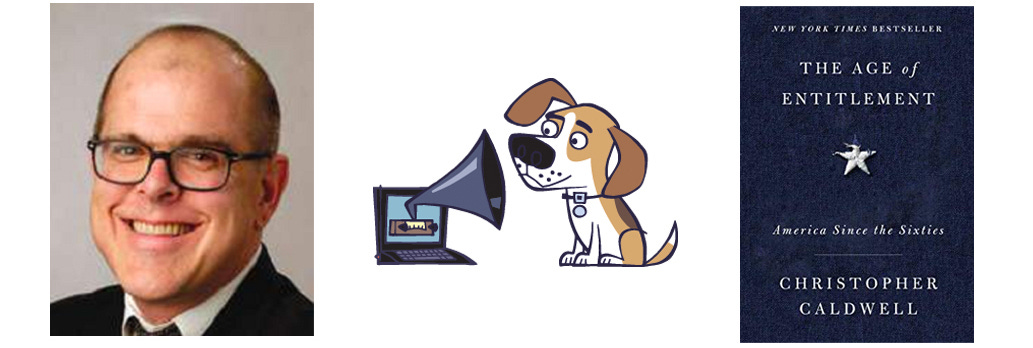
There is political churn all over the world right now. A once-in-a-century plague, a hot war in Europe, massive public debt, and a huge global spike in inflation, will do that kind of thing. In Italy, a new government is now headed by the one figure, Giorgia Meloni, who was not part of the previous government; in France, President Macron has just used an emergency provision to get his budget past the parliament, and is facing a wave of strikes; and in Britain, of course, a party that won a triumphant, landslide 80-seat majority less than three years ago is now on life support.
But it’s the British case that’s the most telling for America, it seems to me, because it helps answer the question as to where the Anglo-American right is now going. And the answer, I’m sorry to say, looks like some version of incoherent chaos. The formula under both Trump and Boris (however vast their differences) was pretty simple only a short time ago: a nationalist turn in foreign policy, a leftist pivot on economics, and a vigorous resistance to woke extremism in the culture.
At least, that was the working theory. But as a theory, it has worked for only a very little while, if at all.
In Britain, the Tory faithful decided they would replace their landslide-winning, big-government, Red Tory Boris with a charisma-free Reaganite who ran on reversing Boris’ legacy, with unfunded tax cuts and unlimited banker’s bonuses as ordinary Brits were facing a brutal cost-of-living crisis. In one dramatic swoop, Truss destroyed the Tories’ credibility with both the working-class Brexit voters who gave them their 2019 majority and with the financial markets and mortgaged homeowners who had been their backers for decades. That’s quite an achievement in such a short time.
More significantly, that someone elected leader of the Tory party in 2022 decided this was the way to go — straight back to the 1980s! — shows just how shallow the support for the new Toryism was. So much for a realignment! Two other paradoxes already baked in: a government elected to control immigration changed the law to guarantee much more immigration from outside the EU; and a government supposedly refocused on the home-front became passionately committed to the war in Ukraine, spending vast sums on a distant war. More pointedly, these three major policy themes — tax cuts, increased immigration and interventionism abroad — are all precisely what the new conservatism was supposed to be against. It’s zombie neoliberalism, just in time for Halloween.
And it makes you wonder just how cogent the whole idea of a new “national conservatism” can be. Can the Anglo-American right really restrict immigration when push comes to shove? (It has yet to happen in either country outside the Covid emergency.) Can they really spend much money on poor families without raising taxes? (Ditto.) Are they capable of moderating globalization and mass migration when it drives so much of the corporate bottom-line? (Not so far.) Can they draw the line at woke excesses without retreating to religious doctrine or bigotry? (Not so much in the US, alas.) And can they really run a serious country without some buy-in from the elites they constantly demonize and rail against? (To be determined, but in the UK, not so much.)
Readers know I’ve been thinking out loud about these questions for quite a while now, and I’ve done my best to give the New Right a chance to explain itself (with Chris Rufo, Yoram Hazony, Sohrab Ahmari and Michael Anton all on the Dishcast). In their defense, they really do point to previously suppressed questions: the costs as well as benefits of mass migration; elite abuse of power in the culture war; the catastrophic wars in Iraq and Afghanistan; the loss of collective meaning in a postmodern world; the ill-judged Western complacency toward China and Russia; the toll of free trade on the American middle class; the folly of financial deregulation; the toxic racism of “antiracism,” and so on. I see their points on much of this.
But translating these largely negative insights into positive policy, let alone effective governing — and being able to frame the message as one that could unite rather than further polarize us — has eluded them. It’s no accident that they cannot fully defend the polarizing madness of Trump — and yet would not have had any influence without him.
Read the rest of that 1300-word piece here, for paid subscribers.
This week’s issue also includes: a convo with Chris Caldwell on the rapidly shifting politics in Europe; my criticism of John Oliver and Jon Stewart’s propaganda; many reader dissents and assents over my piece on affirmative action; eight notable quotes from the week in news, including two Yglesias Awards; 13 pieces we recommend by other Substackers; your weekly dose of MHB and VFYW, and, of course, the results of the View From Your Window contest — with a new challenge.
From a new subscriber in Houston:
I’ve been a freeloader of TWD for a while now, but I’ve finally broken down and subscribed, despite my financial constraints. What pushed me over the edge, you ask? The most recent post about affirmative action. Your eloquence, attention to the facts, and courage on this most touchy of subjects is outstanding, and worthy of praise (and yes, a paid sub). Whatever quibbles I may have with you on any variety of topics, I always come away from the Dish more enlightened in some way. Maybe it’s a yearning for reason in these difficult times — such a rarity. I’m glad the Dish is out there fighting the good fights.
The Oliver And Stewart Method
First off: I used to enjoy the daily riffs of Jon Stewart and John Oliver. They’re very talented performers and making consistent fun of the news is harder than it sounds. I also don’t begrudge them moving far more firmly into the political commentary space, and to do so on the far left. That’s their prerogative. Good luck to them.
But what they do now is more disturbing than that. My own experience with Stewart opened my eyes a bit about what has happened to him, but the recent Oliver-Stewart forays into the debate about children with gender dysphoria are really quite something.
The core theme of both episodes is that this is a controversy entirely invented by the far right. Oliver says upfront that he has no intention of taking the worries about medicalizing children “sincerely” — because they’re self-evidently bigotry and cynical politics, the equivalent of attitudes toward gay people many decades ago. Stewart has ACLU nutter Chase Strangio on to say the only reason for the debate is because midterms are coming up, and religious fundamentalists just hate trans children. No other reason is ever mentioned.
For shits and giggles, both shows include slickly-edited propaganda videos featuring religious nuts and designated hate-figures like Ted Cruz who are booed or laughed at by a live audience. They’re the equivalent of Orwell’s “two minutes of hate” — a device to demonize the other side. Stewart, to keep the propaganda pure, bars any dissenters on his panels, and conducts interviews in order to mock and belittle, not engage.
His triumphant “gotcha” moment in his interview with an Arkansas official is when he calls the stat of “98 percent” of gender dysphoric kids growing out of it “made up.”
(Read the rest of that 1200-word piece here, for paid subscribers)
New On The Dishcast: Christopher Caldwell
Chris — an old friend and one of the sharpest right-of-center writers in journalism — returns to the Dishcast. We’ve got a whole new Europe to get our heads around. A senior fellow at the Claremont Institute and contributing editor to the Claremont Review of Books, his latest book, The Age of Entitlement, is a constitutional narrative of the last half-century that is indispensable — especially for liberals — in understanding the roots of our polarization. This time on the pod, Chris has just returned from Europe and discusses the rapidly shifting politics there.
Listen to the episode here. There you can find two clips of our convo — on how one-child families could be the downfall of Putin’s war, and how Biden is co-opting Trump on border policy and China. That link also brings you to a new transcript with Matthew Rose, along with a ton of listener commentary on our episodes with Rose, Yoram Hazony, Louise Perry, Dexter Filkins, Jon Haidt and more — including a lively reader debate on affirmative action.
A listener writes:
We are a group of big fans here in Central Italy who listen fervently to every Dishcast and discuss them. Your interview with Yoram Hazony started well with an interesting debate and conversation that was well appreciated. Things went south at the end.
I can’t help but think how Christopher Hitchens would have commented at Hazony’s view on furthering a Christian agenda in America. It seems that is exactly what people don’t want right now — to add more Christian dogma and mythology into the mix of American politics when we so desperately need logical and reasonable minds on deck. A toxic recipe, in my view.
Bravo Dishcast, and buon lavoro. As a hardcore Hitchens fan, I find that listening to you helps ease the pain of missing him. (I loved listening to the Hitch conversation you broadcasted while your voice was healing.)
Browse the entire Dishcast archive for an episode you might enjoy.
Dissent Of The Week
A reader writes:
I’ve been disappointed to see how far right you’ve moved since the blog days, when you actually seemed to engage with more liberal perspectives and sometimes change your mind. As an example, this is an egregious statement of yours: “A recent David Shor analysis found that, among Democratic policies, affirmative action was among the most unpopular — with even less support than ‘defund the police.’”
“Defund the police” is not a Democratic POLICY. It’s not at all part of mainstream Democratic thought. “Affirmative action” is a Democratic policy position, but most of your discussion of it in your newsletter is designed to encourage misinterpretation of it.
Read my reply to that dissent, along with another on affirmative action, here. As always, please keep the dissents coming (Chris Bodenner picks them, not me, to hold my feet to the fire): dish@andrewsullivan.com.
In The ‘Stacks
This is a feature in the paid version of the Dish spotlighting more than a dozen of our favorite pieces from other Substackers every week. This week’s selection covers subjects such as the LA City Council, incels, and bitemark analysis. Below is one example, followed by a brand new substack:
Olivia Reingold digs deeper into the question we aired last week over why there hasn’t been much coverage of the attacks on pro-life clinics.
Welcome, Buck Angel! The trans pioneer was a hit on the Dishcast last year. Start a pod, Buck! Hamish McKenzie just did — about writers coping with the Internet, starting with George Saunders.
You can also browse all the substacks we follow and read on a regular basis here — a combination of our favorite writers and new ones we’re checking out. It’s a blogroll of sorts. If you have any recommendations for “In the ‘Stacks,” especially ones from emerging writers, please let us know: dish@andrewsullivan.com.
The View From Your Window Contest
Where do you think it’s located? Email your guess to contest@andrewsullivan.com. Please put the location — city and/or state first, then country — in the subject line. Proximity counts if no one gets the exact spot. Bonus points for fun facts and stories. The winner gets the choice of a VFYW book or two annual Dish subscriptions. If you are not a subscriber, please indicate that status in your entry and we will give you a free month subscription if we select your entry for the contest results (example here if you’re new to the contest). Happy sleuthing!
The results for last week’s window are coming in a separate email to paid subscribers later today.
See you next Friday.






